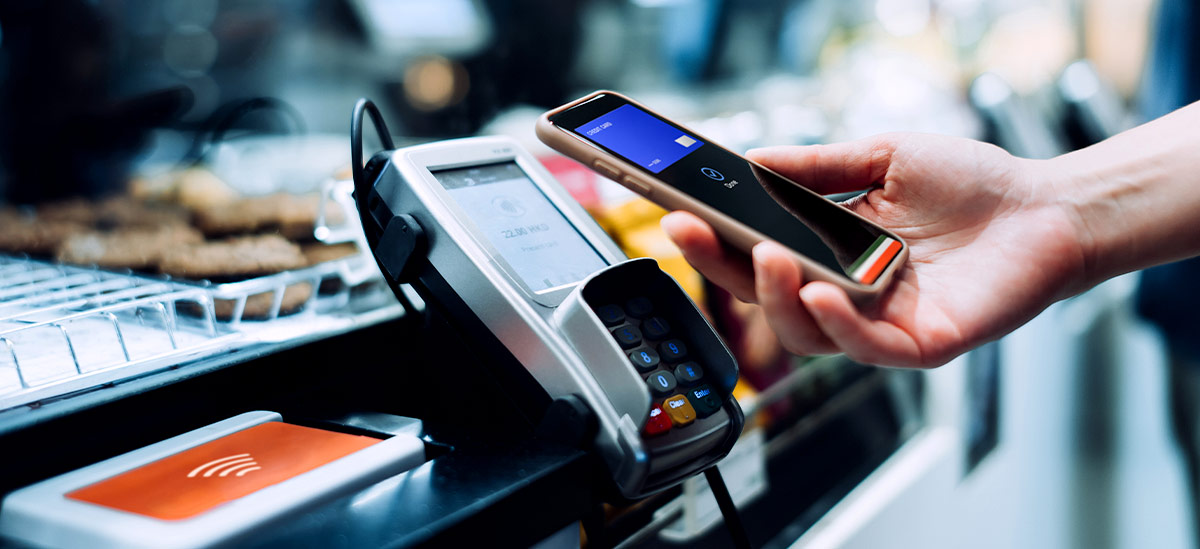
All You Need to Know About Digital Payments
In recent years, consumers have shifted away from depending on cash and writing checks to the preference of using debit and credit cards to make payments. This has expanded further as consumers are using newer digital payment methods to send money between friends and family, pay bills and make purchases.
Types of Digital Payments
As digital payments have grown in popularity, the methods for making them have also increased. Here's a rundown of some of the most popular types of digital payments.
Debit and Credit Cards
Debit cards allow you to make a payment by using funds already deposited in your linked bank account. On the other hand, credit cards borrow funds from a limited line of credit offered by the card issuer. You'll have to pay back your credit card balance, plus interest (based on your credit card agreement), over time.
Mobile Wallets
A mobile wallet is an app that stores your credit or debit card information on your smartphone, smartwatch, tablet, or other mobile device. Popular mobile wallet apps include Apple Pay®, Samsung Pay™, and Google Pay™. You can use a card stored in a mobile wallet when using your smartphone or other device to shop online — it will usually appear as a payment option in the checkout flow.
Many retailers and restaurants now have payment-processing terminals that accept mobile wallets. All you have to do is unlock your phone or other device, tap to open your mobile wallet app, and hold the mobile device up to the point-of-service (POS) terminal, just as you would your chip card.
Online Shopping
Internet shopping on websites and mobile apps allows merchants to accept payments from consumers for the purchase of goods and services online.
Peer-To-Peer Payment Apps
Peer-to-peer (P2P) payment apps allow users to send, receive, and request money directly to and from others. Before using one of these apps, you must first link your bank account or credit or debit card. It’s important to only use trusted P2P apps and to only send money to people you know and trust.
All you need to initiate a transaction using a peer-to-peer payment app is the recipient's email address or phone number. You can use this information to look up their account and add them as a contact in the app.
These digital payment apps are intended for use with friends and family. They're popular solutions for scenarios such as paying a friend back for your portion of a restaurant check or paying a friend for pet-sitting while you're out of town.
Popular peer-to-peer payment apps include Zelle®[1], VenmoSM, PayPal, and Cash App. The Zelle Network® of 1,800-plus banks in the U.S. allows customers to send and request digital payments directly through these banks' mobile apps.
What Are the Benefits of Digital Payments?
Whether you're a consumer or a business owner, there are many reasons that digital payments make sense.
They're Convenient
Digital payments are far more convenient than using cash for both customers and business owners. When depending on a digital wallet, debit or credit card, or other form of electronic payment, there's little need to carry around cash that could get lost or stolen.
Digital payments have also made it possible to pay for goods and services online, which can be far more convenient than visiting a physical store or office location.
They're Fast
Digital payments also make transactions smoother and quicker because they don't involve digging through a wallet for bills or counting out change from the register. To make a digital payment, you only need to hold a card or smart device near a payment terminal or tap a few buttons on your mobile phone.
They Have Built-In Security Features
Digital payment methods often feature advanced security features such as multi-factor authentication and encryption to help keep your bank account information and other personal details private.
Digital Payments: Transactions of The Future
Digital payments are increasingly becoming part of everyday life.
Some businesses have already gone cash-free and accept only digital payments.
By eliminating the need to pay with cash, digital payments facilitate transactions around the world conveniently. They're integral to the future of money.




